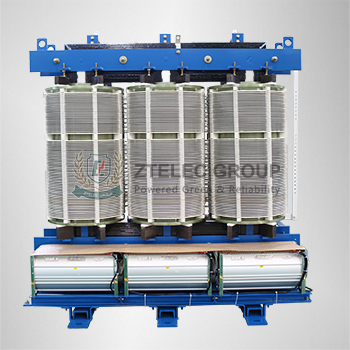The overload operation of the transformer means that the load current exceeds the rated current of the transformer. Under normal circumstances, when the transformer is operated under small load, its insulating material can not fully play its role. In the continuous overload operation, the transformer will generate high temperature, so that the insulation part of the winding is burnt and hard off, forming a turn-to-turn short circuit. The sludge accumulates on the fuel tank plate, the windings and the iron core, causing poor heat dissipation of the transformer oil. Therefore, always observe the three-phase load current. The three-phase load current is consistent, and if there is a deviation, it should not exceed 10%. The operating temperature of a transformer has a lot to do with its life. The transformer operates at a normal temperature of 95 °C and has a life of 20 years; if it is operated up to 110 °C, the life is shortened to 7 years. If the temperature rises to 130 °C, its life will be shortened to 2 years.
There are many reasons for the transformer oil level drop. Due to poor welding quality and poor sealing, the heat pipe, valve, box edge, etc. are easily bleed and oil leakage. When the oil level drops below the upper cover of the transformer, the contact surface of the oil and air increases, and it is easy to oxidize and deteriorate and absorb the moisture in the air, so that the compressive strength of the oil is lowered, thereby destroying the insulation performance of the winding. In the case of severe oil shortage, the insulation of the transformer’s conductive parts to the ground and between them is reduced, causing phase-to-phase or ground-to-ground breakdown discharge. If you continue to use it at this time, the transformer oil will not circulate normally, causing the transformer oil temperature to rise, shortening the life and even burning. The insulating sleeve is not cleaned for a long time, or there are damaged cracks and discharge marks. In rainy or foggy weather, the leakage current of the insulating sleeve increases due to the humidity of the air, and the insulation drops, and flashing to the ground occurs. In addition, the insulating casing is heavily fouled, and there are large fragments and cracks on the insulating casing, which may also cause an explosion accident. To solve this phenomenon, besides observing the insulating sleeve itself, it is also necessary to pay attention to the fouling law of the casing, such as the wind direction and the surrounding environment, so that the cleaning work can be done well.

